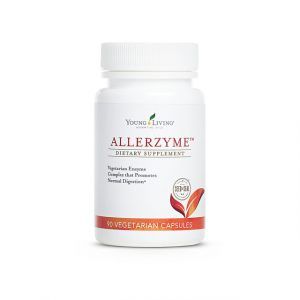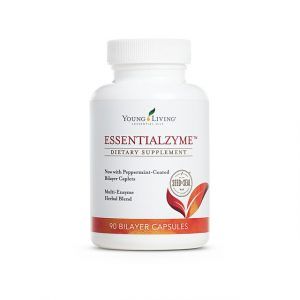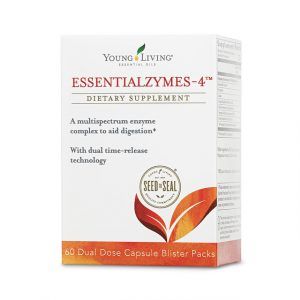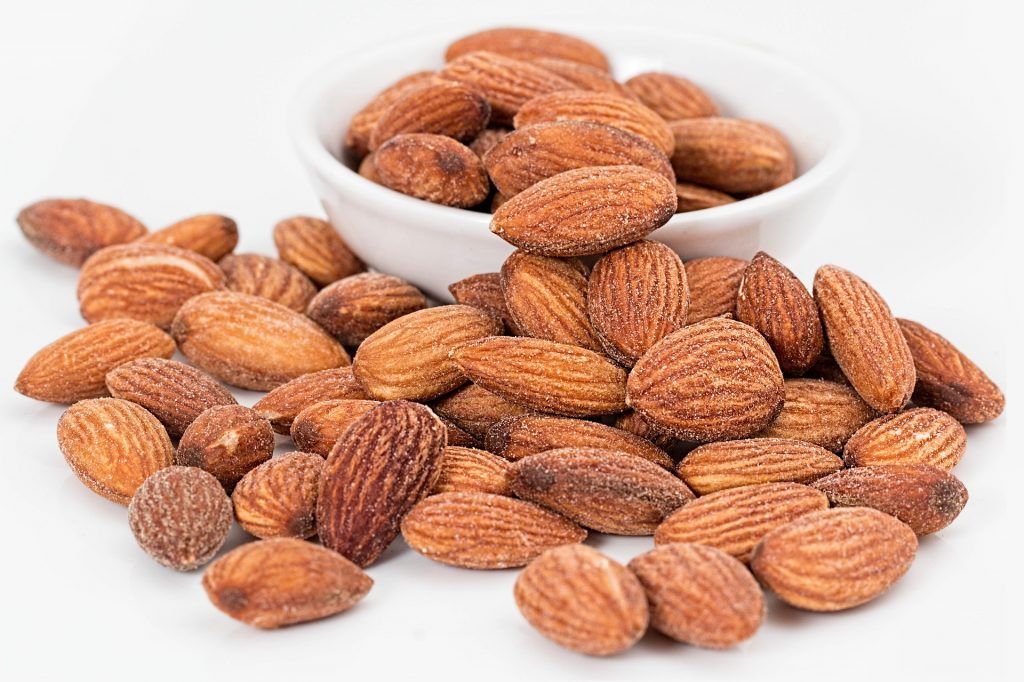What Exactly Are Enzymes? By Gary D. Young
What exactly are enzymes? Enzymes are the proteins produced by living organisms and are composed of amino acids.
Enzymes are formed by stringing together long chains of amino acids, which have literally millions of different structures.
Enzymes are catalysts that create many essential biochemical reactions. These enzymes are not consumed in the daily processes of the body. However, if you are taking ibuprofen, Tylenol, or an antibiotic; if you are receiving chemotherapy or radiation therapy; or if you are cooking your food in a microwave, you are destroying your enzymes, and the enzymes cannot build or develop in your system. Without the enzymes, some metabolic processes would happen very slowly or not at all.
Our body has many different kinds of enzymes, but the three major ones are digestive, food, and metabolic.

Each enzyme has a specific blueprint and function. Every daily biochemical function of the body requires enzymes to facilitate the building of compounds from the body’s raw materials, the unlocking of nutrients, and the breaking down of substances such as food, toxins, and chemical wastes in the body. Therefore, when enzymes are disrupted, they lose their ability to function.
HORMONES AND ENZYMES
Hormones keep us young and energetic. But remember, your body must have enzymes in order to create hormones.

Enzymes are natural chemical compounds that orchestrate other chemical functions. Foods are made of chemical elements that require enzymes to break them down and prepare them to be used by the body. Enzymes unlock these life-supporting nutrients in our food. Without enzymes, life would cease to exist.
Enzymes play a major role in every metabolic process in the body, from glandular function and support to hormone production and toxic waste disposal. They facilitate digestion and assimilation. Enzymes are in all raw food products; carrots are especially high in natural enzymes.
Enzymes need minerals and vitamins to function, and they free minerals, vitamins, proteins, and hormones to be used in metabolic functions.
This is so critical. How many of you women have hormone deficiencies and know it? Hundreds. How many of you suspect you do? And you are right. Why? Your body cannot create hormones without enzymes. Hormones are made in a series of steps, and each step requires enzymes. Why are we hormone deficient? It may be that we don’t have enough enzymes. Can we change life? Can we maintain longevity? Absolutely.
Aging is not a requirement for diminished hormones. The higher the level of hormones you can maintain, the greater longevity you will have, the greater flexibility you will have in your joints and muscles, the greater strength you will have, and the more elasticity you will have in your ligaments. Then when you are 60 plus years old, you will be able to do the things you did when you were 30 years old.
So how does that happen? It’s called discipline. It’s called commitment—to a purpose, the purpose of your good health, eating habits, and what you supplement with.
ENZYMES AND GOOD GUT HEALTH
The upper stomach is alkaline, with a pH of 6.5–7, and food remains there for one hour and then enters the lower stomach, which is acid, with a pH of 2.5–5. This is really critical in helping to maintain good pH in the stomach. How do you do that? Two things are really critical: enzymes, No. 1, and probiotics, intestinal flora, No. 2.
So you have to have intestinal flora and enzymes to maintain a good pH range in the gut. If you don’t, what is the end result of not having good pH? Burping, gas, excessive acid, bloating, headache, stomachache—all those wonderful things that we sometimes experience.

Supplemental enzymes come from plant, microbial, fermentation, and animal sources. A lot of you may be vegetarians, and I just wish for you to pay close attention, because I feel that I can speak your language quite well. I was a strict vegetarian for 27 years. I lived that life and felt it was really valuable—except for one thing: not enough enzymes.
When you’re young in your 20s, 30s, and 40s, it’s really easy to be a vegetarian. When you hit 40, however, things start to change a bit. All of a sudden—particularly for you ladies who have had children—you start to notice that your energy is down, and your skin doesn’t feel as soft and firm as it used to. You start to get little lines around your eyes but feel that you shouldn’t.
Estrogen is needed to maintain beautiful skin for you ladies, and when you’re a vegetarian, you have a very difficult time maintaining proper estrogen levels after the age of 40 if you have had children. Now if you haven’t had children, you can probably make it to 50 before you really start noticing it, but in today’s world, I really doubt it.
For you men, it’s not any different, but it takes a little longer for us to notice the effects, since we’re not having babies and the alterations to our bodies that take place in women’s bodies. So a man might get to 50 before he can’t run quite as fast, can’t jump quite as high, or can’t bench press quite as much. Why? Because his testosterone levels are low. If he’s having problems as a married man, that might be an indicator to him. Testosterone. That’s what allows a man to run fast, jump high, bench press, and do the things he did when he was 20.
So what can we do to help our bodies produce hormones? Replenish our enzyme reserve, including animal enzymes.
Plant enzymes work in the higher (alkaline) pH of the upper stomach and continue to be active throughout the acid of the lower stomach. Then they pass into the small intestine, which is alkaline, after which they reactivate and continue to work.
YOUNG LIVING ENZYME SUPPLEMENTS

This is why I’ve made several different enzyme supplements for you. You have Allerzyme, Detoxzyme, Lipozyme, Fiberzyme, Polyzyme, Carbozyme, and Essentialzyme. You’re just plumb “-zymed” up. I wanted to make it simple for you, so I did a little thing that might be fun with Essentialzymes-4™ that you can put in your pocket or purse. Four enzymes come in a two-capsule blister pack, so you can easily take your enzymes wherever you would like to go.

Essentialzymes-4 capsules are two different colors. In this pack there are natural or cream-colored capsules and yellow capsules.

The natural-colored capsules are animal and plant enzymes and contain lipase. What does lipase do? It digests fat—and it does not come in a plant enzyme. Vegetarians who don’t take or eat any animal product do not get lipase. So what happens when their storage reserve of lipase that they’re born with is used up, and they’re a vegetarian? It’s gone. You have to supplement with lipase if you’re a vegetarian, and if you’re a vegetarian and you don’t want to use an animal product, you’re in trouble.
Because proteins and carbohydrates have 4 calories per gram while fat has 9, the fat-free diet came out in the 60s and continued evolving into the 80s. And what happened? The fat-free diet was promoted all over television, all over the world, and people’s hormones dropped even more because they didn’t have fat with which to make hormones.
Yes, you have to have fat, but the right kind, and you’ve got to be able to convert it into a usable form. So the natural-colored capsule is lipase, an animal and oil enzyme, your old Lipozyme. Really simple.
Plant enzymes have a wider range of activity than animal enzymes because there are so many of them, including protease, lipase, amylase, glucoamylase, alpha-galactosidase, cellulase, hemicellulose, invertase, malt diastase, lactase, pectinase, and phytase. Wow, that’s a mouthful of “-ases.”
The plant enzymes—which are in your yellow capsule of Essentialzymes-4—contain what we used to provide separately as Fiberzyme, Polyzyme, and Carbozyme, which are so essential for you.
Why is Fiberzyme important? People today do not digest fiber, and fiber is the host to candida, bacteria, and viruses. I have yet in 30 years to see a single client with candida who was able to digest fiber.
Polyzyme contains protease to maximize protein digestion. It facilitates the breakdown of proteins into amino acids, supports the digestion of high-fat foods such as nuts, and enhances the absorption of nutrients.

Carbozyme contains amylase for digesting carbohydrates. The absence of amylase is the No. 1 cause of allergies today, so look at that and look at your past. Were you a child that maybe was nursed for a couple of months, and Mama ran out of milk, so she had to put you on formula? If that’s the case, you did not get enough amylase to build up the reserve in the body to be able to digest carbohydrates. So what are you allergic to? Carbohydrates. All of this just builds the stage for having a wide range of health problems, including allergies and gluten intolerance.
All of these enzymes are now in your Essentialzymes-4.
Now, why are you so sensitive to gluten? Part of it is because all of the gluten products today are made from hybrid grains that have no enzymes. If you don’t have the enzymes, the product you are eating doesn’t have enzymes, so what’s going to digest it? Nothing. It’s going to create fermentation and may create a host environment for candida, bacteria, or a pathogen that leads to a disease. You are going to have problems and complications.
Original article/post can be found at https://www.dgaryyoung.com/blog/2019/what-exactly-are-enzymes/
 Ohana Chiropractic
Ohana Chiropractic